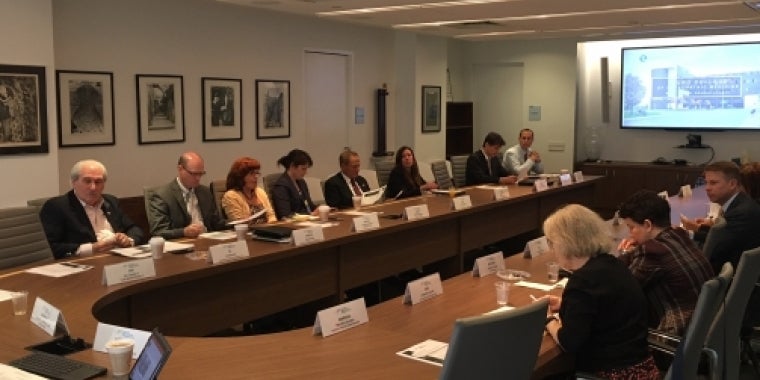
Statement by Senator John Bonacic
John J. Bonacic
September 7, 2011
On DEC’s release of the Draft SGEIS and Public Comment Period Relating to Hydraulic Fracturing Being Extended Until December 12, 2011
Today, the DEC has released the revised Draft Supplemental Generic Environmental Impact Statement. In addition to the environmental mitigation portions of the SGEIS which were released on July 1, the newly released document is now complete, with additions focused on socioeconomic, community character, visual, noise and transportation impacts of hydraulic fracturing.
The DEC Commissioner further announced that in October, the DEC will release regulations for the hydraulic fracturing industry that the DEC will seek to require those in that industry to follow. As a result of the Commissioner’s announcement that he will also be releasing the regulations in early October, he has extended the comment period on the SGEIS, initially planned to be sixty days, to December 12. During that time, the public will also be able to comment on the draft regulations being released in early October. After the public comment period for both the SGEIS and draft regulations closes on December 12 (unless extended), the DEC will be in a position to finalize the Generic Environmental Impact Statement and regulations, unless both are further revised after the December 12 comment period ends.
In response to today’s announcement, Senator John Bonacic issued the following statement:
“I appreciate and applaud the careful efforts of DEC Commissioner Joe Martens and the staff at the DEC, with respect to the SGEIS on Hydraulic Fracturing. I look forward to reviewing the document. The potential to create thousands of jobs with hundreds of millions of dollars in wages is certainly welcome.”
“I also have no objection to the extension of the comment period from 60 to 96 days as Commissioner Martens has provided for. The Commissioner, by also releasing proposed regulations governing fracking next month, is properly showing the public, both the environmental mitigation efforts, and the regulations the industry will have to live with, and allowing comment time on both.”
“While those who are against drilling will always want more time in an effort to stop it, and those who are for drilling want to drill today, science not politics should drive all the DEC’s decision making on this critical issue. I believe that has been the case under Governor Cuomo and Commissioner Martens, and expect that will continue.”
###



